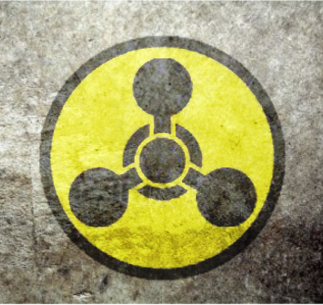Associate Professor Allan Blackman, from the University of Otago Chemistry Department, writes about the history of chemical warfare in his regular Otago Daily Times column, ‘Chemistry Matters‘.
 An excerpt (read in full here):
An excerpt (read in full here):
Long history of chemical use in warfare
It’s an opportune time to revisit the subject of chemical weapons, something avid readers will know I’ve had occasion to write about previously.
Recent events in Syria have focused enormous media attention on these weapons, and therefore a brief history of their development and use may assist in a greater understanding of one of mankind’s most inhuman and inhumane inventions.
While it may be argued that chemical weapons date back several thousand years, the first documented preparation of a chemical weapon can be dated to sometime around the 9th century in China.
Crucial to the development of this particular chemical weapon was the isolation and purification of an essential component, potassium nitrate, found in natural deposits in that part of the world. This compound gradually travelled westwards along the Silk Road, being mentioned in Arabic and Western writings as ”Chinese snow”, thereby facilitating the development and first use of truly ”modern” (as we would recognise them) chemical weapons, in Europe in the 14th century.
As you can imagine, these weapons revolutionised warfare, allowing significant numbers of enemy combatants to be killed as a result of the actions of a small number of soldiers a vast distance away, at little or no risk to the attacking forces. While these weapons were ”improved” over the succeeding centuries, their basic principle of operation, which involved a particular chemical reaction, remained essentially the same.
All the wars fought in the 20th and 21st centuries have made extensive use of chemical weapons and casualties from these in World Wars 1 and 2 numbered in the tens of millions. The civil war in Syria is no different in this respect and thousands of casualties have resulted from these weapons.
One drawback of chemical weapons is that they are somewhat indiscriminate, killing both military and civilians alike. They are also readily available, thanks to the enthusiastic and unfailing efforts of manufacturers worldwide, and can therefore easily fall into the ”wrong” hands. And yet, amazing as it may seem, the Geneva Convention places no moratorium on the use of these weapons.